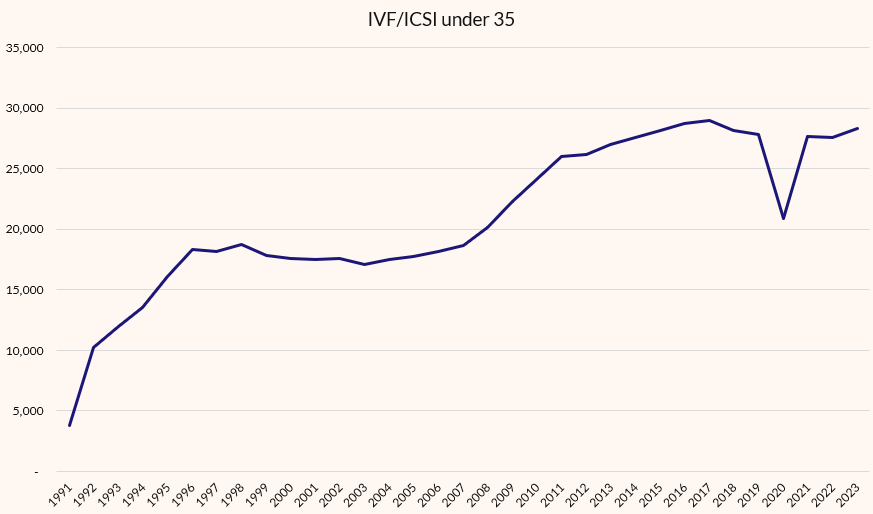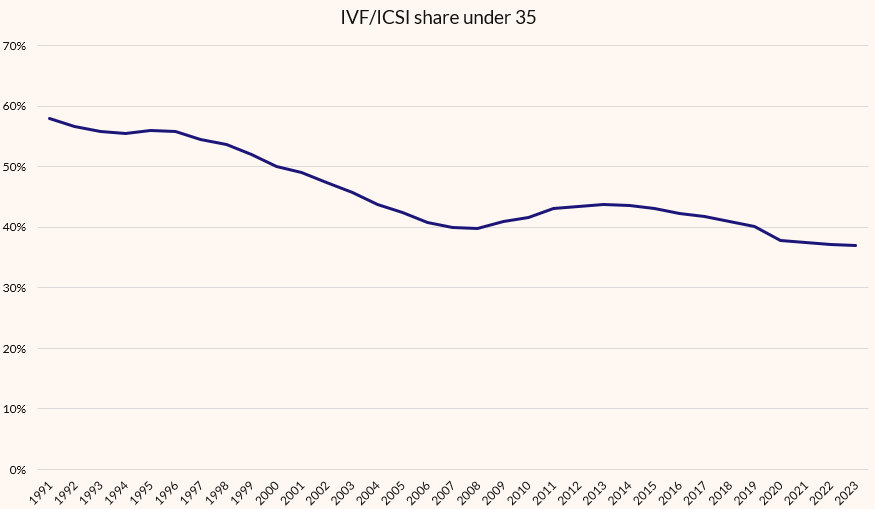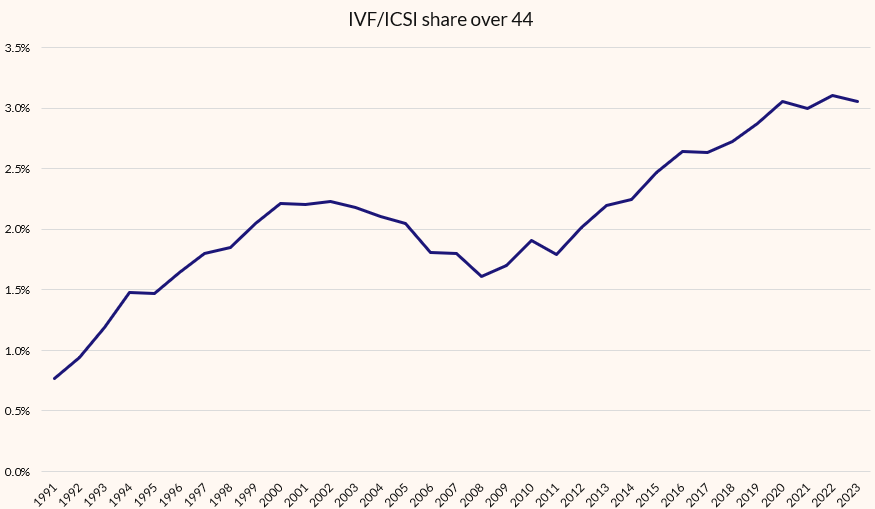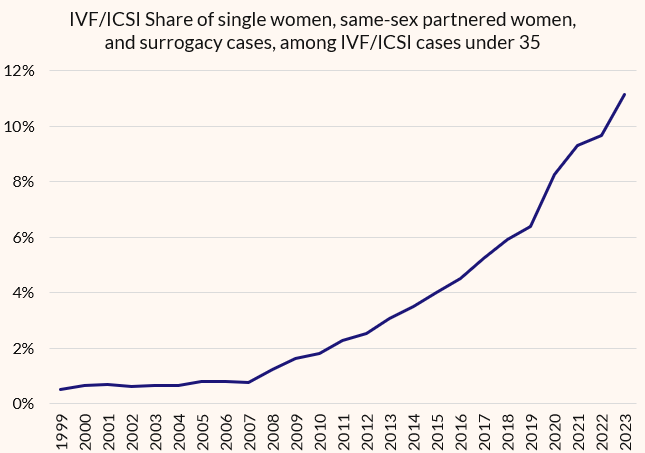Subsidizing IVF Is A Bad Idea
It's ineffective and discriminatory. Just make child allowances big enough to cover it.
Recently,
has a nice article on why she thinks it’s good to subsidize IVF. I have previously argued that IVF subsidies don’t increase birth rates, and mostly concedes that point.So, where me and
agree:Subsidies for IVF do not increase societal birth rates.
But
still favors subsidies for IVF! She says it’s because in fact IVF users are disproportionately younger than I say and so likely to actually be facing infertility, and because people who voluntarily choose to wait until after age 35 and end up with age-related infertility unrelated to any actual disease should still have IVF subsidized for ??reasons??.I’m going to address what’s going on here using the British HFEA data
uses.My ultimate take is:
Fewer and fewer IVF users are motivated by actual primary infecundability, and more are motivated by a desire to compensate for their own life choices. Taxpayers or premium-payers should not be expected to subsidize those choices, since naturally fertile couples receive no such subsidy. Furthermore, the focus on IVF reprotech comes at the expense of vastly more promising arenas of innovation. Disease-prevention should always come first.
Are IVF Users Actually Young?
is correct that there are a lot of young IVF users. Here’s IVF/ICSI counts of patients under 35:So yeah, a lot of young people are using it!
But actually, in Britain, the average age of an IVF user is rising!
It used to be that over half of IVF users were under 35! Now, it’s just over a third, and falling. IVF/ICSI users are getting older and older. So my quip about “47 is not a disease” wouldn’t have landed in 1991— but it definitely will in 2030!
And what’s the fastest growing user-group?
The over-44s!
Yes, they’re a small share, but they’re where the IVF industry is heading. When we talk about policies for the future, we have to actually envision the future, and the future is more and more IVF being directed towards lower-and-lower-success-rate women who are less-and-less-likely to have an actual diagnosable cause of infertility, and more likely to have simply not gotten around to having kids earlier.
Why Do Young People Use IVF?
But but back to young people— it’s weird so many of them use IVF. Young people are mostly fertile! True primary infecundability afflicts a very small share of populations under age 30, and is mostly due to a range of diagnosable conditioned: untreated prior infections like chlamydia (not fixable with IVF), severe endometriosis (somewhat fixable with IVF, but actual treatment is preferable, and for the record the best treatments are usually excluded from insurance coverage), fallopian tube blockage (IVF can address this, but a range of minimally invasive surgeries can actually treat the issue: AFAIK, no regions with mandates require treatment before pursuing IVF), low sperm count (IVF/IUI can both solve, but donor sperm is the increasingly prevalent solution), or unusually early cancers (IVF can’t solve).
So who are these young people using IVF?
Here’s the share who are something other than a women in an opposite-sex partnership; so this includes women in same-sex partnerships, surrogacy cases, and single women:
Line go up! A rapidly growing share of IVF/ICSI cases are in fact women who are almost certainly not infertile: they are just unpartnered, or same-sex partnered, or they are surrogates in the employ of same-sex partnered men.
Just as the rapid growth of much older women tells us about the future of IVF, so does the rapid growth of women whose reason for pursuing IVF is unlikely to be infertility.
How Common is Donor-Correctable Infertility?
Keep reading with a 7-day free trial
Subscribe to Lyman Stone to keep reading this post and get 7 days of free access to the full post archives.




